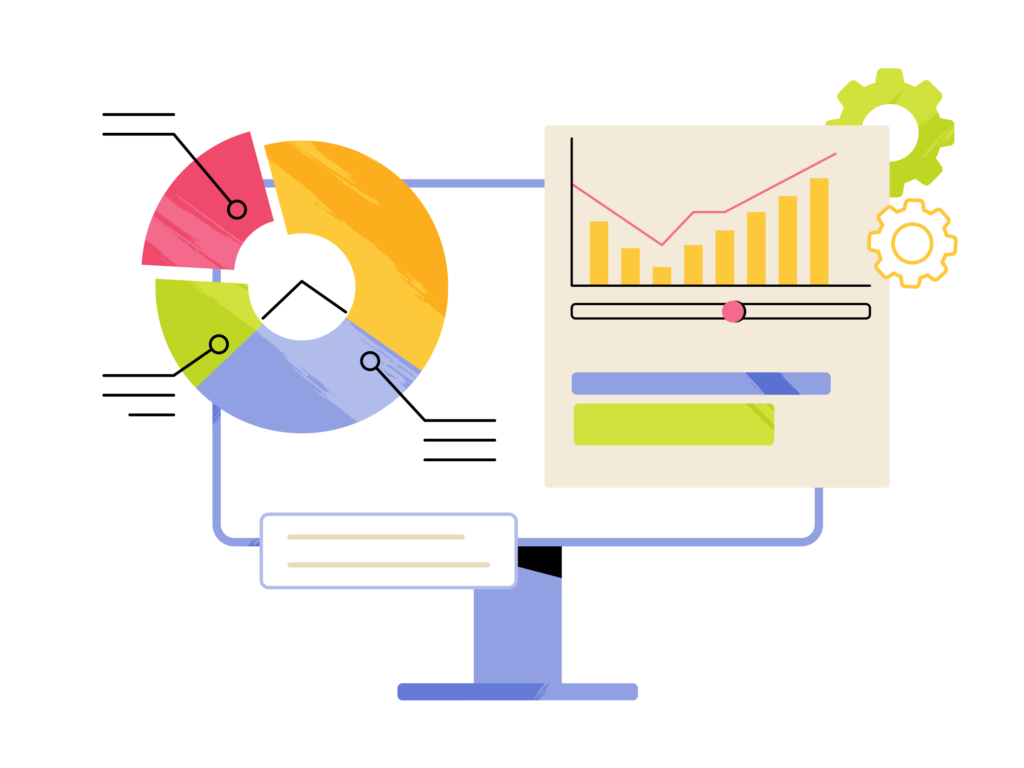As marketers, we all like to think of ourselves as ‘growth marketers’. In actual fact, growth marketing is its own specialism that works differently from other marketing techniques.
Specifically, instead of just directly selling to customers, growth marketing involves using data to make informed campaign decisions. Marketers can then use this information to see what’s working, and quickly adapt anything that’s not.
In short, growth marketers want to understand what keeps customers coming back, so that the direction and techniques used in marketing campaigns can be aligned accordingly. Unlike digital marketing which only focuses on top-of-funnel marketing – growth marketing covers the entire funnel.
Why go to so much effort to undertake growth marketing? When done well, a growth marketing strategy focuses on attracting, engaging and retaining customers. In other words, providing value to customers and nurturing the lifetime relationship you have with them.
With growth marketing a mystery no more, here are our top tips from the Imaginaire team to apply growth marketing techniques to your business.

Develop And Execute Data-Driven Marketing Strategies
The term ‘data-driven’ features heavily throughout all growth marketing techniques, since there is no better way to understand the wants and needs of your customers than studying the data you have about them.
Within growth marketing, the aim is to shape campaigns around data, rather than launching marketing campaigns and hoping for the best.
This process involves collaboration with other teams to share data insights and feedback so that everyone is on the same page. Most importantly, checking that everyone knows exactly who the target customer is along with the objectives of the content since the guessing game has been replaced with actual data.
Data-driven strategies should be used across the board for customer acquisition, customer retention and overall revenue growth of the business.
A/B Testing To Refine Messaging
A/B testing creates two alternative versions of your content (i.e. an email newsletter or a landing page) to determine which option best meets your marketing goals.
While A/B testing isn’t anything new, it is an integral part of growth marketing, since you can use the technique to instantly eliminate weaker strategies. In addition, A/B testing encourages marketers to develop their ideas and concepts beyond their initial ideas. This can result in far more engaging campaigns which distinguish the brand from its competitors.
Depending on the content (i.e. email marketing), marketers can access data about the performance of A & B to track performance over time. Specifically, which directions resulted in higher clicks, engagements and sales.

Tapping Into Customer Feedback
To some, a Google review page or even a net promoter survey (NPS) is just something to mull over when you have time. But for growth marketers, what customers think and feel about your products and services is a key driver of marketing and overall business decisions.
After all, there is no better way to refine your brand and give your customers what they want than listening to their honest feedback.
Beyond collecting feedback from surveys, social media, sentiment analysis and public reviews, you can also use your marketing software to analyse user behaviours.
For instance, analysing your landing pages to see where users stop scrolling or exit the page – what is the reason for this?
There are lots of ways that users can provide feedback about your business, both directly with feedback as well as indirectly based on common behavioural patterns. Growth marketers constantly analyse all of this information to understand the best ways to stay ahead.

Staying On Top Of Website Analytics
As we noted at the start, growth marketing uses data to make informed campaign decisions. Websites are a central hub for any business online, where customers come to do product research and potentially purchase directly on the page.
In growth marketing, what we’ve established is that any changes are noted and reacted to accordingly and this extends to your website too.
For instance, if traffic suddenly dips, or if a blog post gains lots of visits, the key for marketers is understanding the reason behind such actions. Alongside addressing any technical problems, the aim is also to develop a success formula for the website to once again feed this information back to the wider team.
Prepare And Present Regular Reports On Marketing Performance
Growth marketers collect and present marketing trends within the business, so that everyone is up to speed with performance. While this can be beneficial for clients and stakeholders, the aim of open communication is so that every member of the team can take an informed approach to their work.
The likes of web designers, web developers, copywriters, SEO specialists and paid ad specialists should work in tandem to share information. Strategies can then be refined, including trying different techniques based on what the data suggests.
Teams should also adopt a flexible approach so that changes are implemented quickly, rather than allowing any wasteful or unsuccessful marketing strategies to continue. All of which means growth marketers remain on the ball.
Imaginaire – Growth Marketing For Businesses UK
Is it time your business developed some growth marketing strategies?
The team here at Imaginaire are ready to help, as a leading marketing agency based in Dubai working with businesses across the UK.
Let us know about your business along with your commercial objectives by filling out our contact form.
Alternatively, drop us an email at [email protected] or give us a call on 0115 697 1158.


